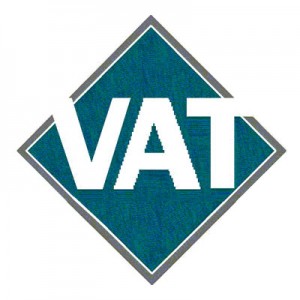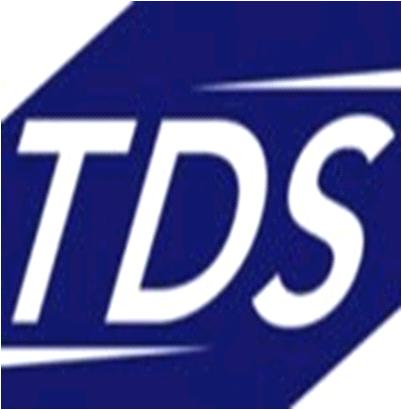
 The Introduction of the VAT system in India was initiated by the present Prime Minister and former Finance Minister Dr. Manmohan Singh in the year 1995 at a Chief Ministers Meeting. The process was continued by the subsequent Finance Ministers especially during NDA Government by former Finance Minister Mr. Yeshwanth Sinha who has constituted a committee called Empowered Committee of State Finance Ministers under the convenership of Sri Aseem Kumar Das Gupta. Finance Minister of Government of West Bengal. Initially the NDA Government as decided to introduce VAT with effect from 01-04-2003 at a Chief Ministers Meeting convened by the Prime Minister Sri A.B. Vajpayee on 18-10-2002 but that was delayed due to same resistance from two or three states.
The Introduction of the VAT system in India was initiated by the present Prime Minister and former Finance Minister Dr. Manmohan Singh in the year 1995 at a Chief Ministers Meeting. The process was continued by the subsequent Finance Ministers especially during NDA Government by former Finance Minister Mr. Yeshwanth Sinha who has constituted a committee called Empowered Committee of State Finance Ministers under the convenership of Sri Aseem Kumar Das Gupta. Finance Minister of Government of West Bengal. Initially the NDA Government as decided to introduce VAT with effect from 01-04-2003 at a Chief Ministers Meeting convened by the Prime Minister Sri A.B. Vajpayee on 18-10-2002 but that was delayed due to same resistance from two or three states.
Under VAT, the tax will be collected at every sale point on difference between purchase and sale price until it reaches to the final customer. It is proposed tobe introduced with effect from 01-04-2005 all over India on single uniform tax rate basis all over the country to avoid unhealthy competition among the member states by granting incentives to entrepreneurs. Also it is proposed to abolish many taxes levied by states like Turnover Tax, Surcharge on Sales Tax, Additional Surcharge and with a promise to abolish Central Sales Tax in a phased manner.
The following are the possible advantages and benefits accorded to the Trader’s under the VAT system:-
- Abolishing of many local taxes.
- Streamlining of tax rates in all over the country on uniformed basis i.e. @1%, @4% and @12.5%.
- Procedure to withdraw the system of Assessment.
- Insisting importance of cross verifications thereby reducing the chances of tax evasion and uniform application of tax laws.
- Expected to collect more revenue by reducing rate of taxes covering the value added at every sale point.
- Streamlining the system of tax collections, tax computations, cross verifications and transparency in tax paid by the consumer.
- Making compulsory to issue bills for every sale thereby reducing the possibility of duplicate goods and reducing the gap between sale prices and manufacturing cost.
- The dealer will provide uniform and correct information to the VAT, Banks, Income Tax and others since it liable for cross verification.
- The VAT system being followed in more than 130 countries of the world.
- Uniform Application of laws for computation of Tax Liability, Assessment & Auditing, Penalty etc.,
- According Opportunity to the Entrepreneurs on commercial principles rather than States sponsored tax incentives, which creates unhealthy competition.
POSSIBLE – DRAWBACKS
- Tax Levy at every sale point will increase the price of some goods where as it was taxed at first sale.
- The tax rates are very high. The optimum should have been high rate for luxury goods like gold and jewelry, medium rate for industrial products and capital goods and low rate for consumer goods.
- Long period of four year for reopening the Assessment.
- Every return, monthly or quarterly is separate for filing appeals will become more expensive.
- Small dealers will be effect by asking them to file quarterly returns instead of present annual returns.
- Restrictions for shifting from VAT to TOT will cause hardship when there is no business.
- Levying of penalty even if there is no tax liability for delaying in filing the returns. The delay can be condoned by collecting late fee or compounding fee.
- More effect on Hotels covered by VAT where the tax liability @12.5% and @1 % for small Hoteliers.
- Proof for input tax credit and genuineness has tobe verified by the dealer, which is very difficult.
- Penalities are at very high side and can be reduced, so as to make penal provisions as punitive but not as punishing measures.
- Tax paid by the dealer anywhere within the State or outside State should have been the criteria for giving input tax credit rather than whether it is used for business or as capital asset.
There will be more ambiguity if the VAT system is not implemented properly. Honest Tax Payers should not be disturbed as well as dishonest has to be penalized. Ultimately, it will be better if the tax rates are @1%, @2% and @4%. It is notified in the past that low rates of taxes leads to more compliance and high revenue collection and low avoidance.


